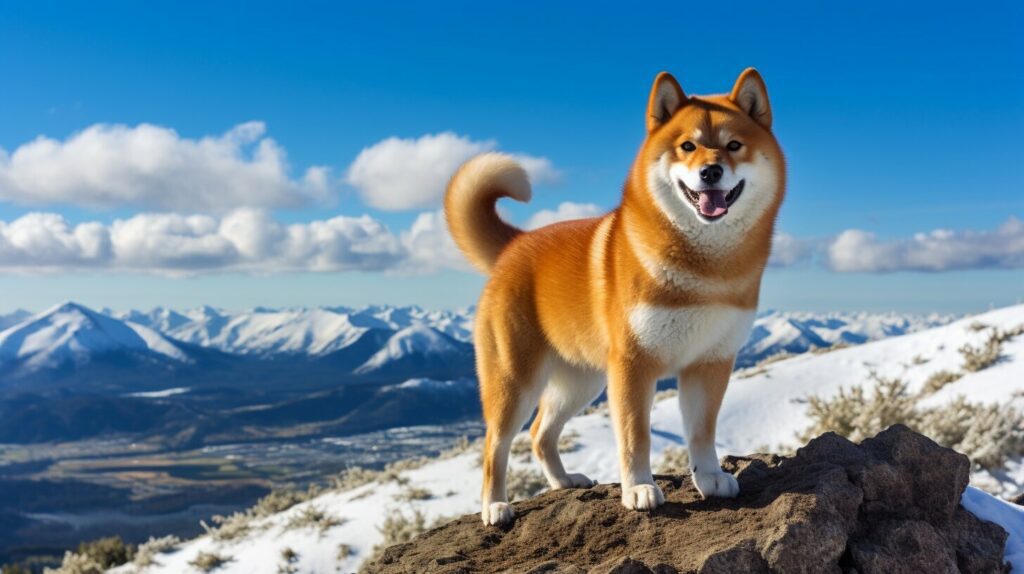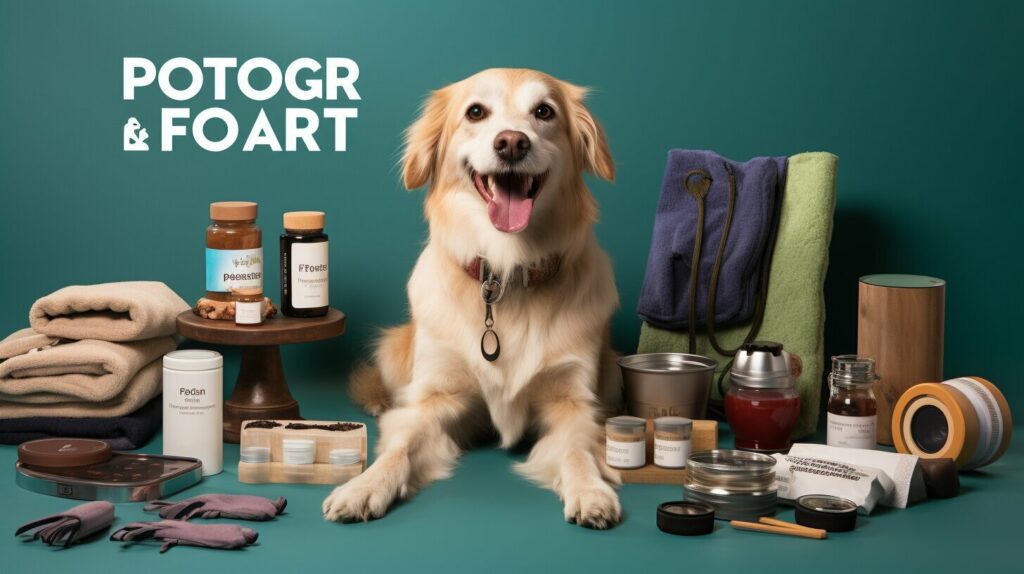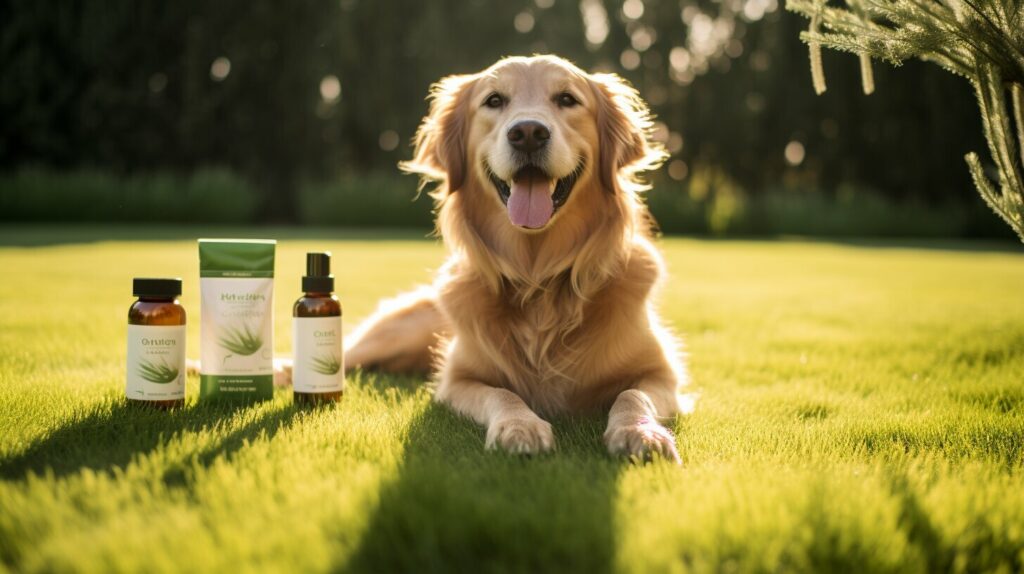If you’re interested in adding a furry friend to your household, you may want to consider a Shiba Inu. These small and spirited dogs are becoming increasingly popular, thanks in part to their adorable fox-like appearance and loyal temperament. However, there’s much more to these dogs than meets the eye. In this guide, we’ll take a deep dive into the world of Shiba dogs, including their history, temperament, training needs, health concerns, and more. Whether you’re a seasoned pet owner or considering your first dog, this comprehensive guide will give you all the information you need to decide if a Shiba Inu is the right fit for your lifestyle.
Key Takeaways:
- Shiba Inus are small and spirited dogs with a loyal temperament.
- This guide will cover their history, temperament, training needs, health concerns, and more.
- Whether you’re a seasoned pet owner or considering your first dog, this guide is for you.
The History of Shiba Dogs
If you’re considering adding a Shiba Inu to your family, it’s essential to understand the breed’s unique characteristics. Shiba dogs belong to the spitz family, which originated in Japan more than 3,000 years ago. However, the exact origins of the Shiba Inu breed are not clear.
Shiba Inus first gained popularity in Japan in the 1920s and were recognized as a national treasure in 1936. However, during World War II, many Shiba Inus were killed, and the breed almost became extinct. Fortunately, a handful of dedicated breeders saved the breed and helped it regain popularity in Japan and around the world.
| Appearance | Personality |
|---|---|
| Shiba Inus are small to medium-sized dogs, typically weighing between 17 and 23 pounds. They have a double coat that comes in a variety of colors, including red, black and tan, and sesame. They have a fox-like appearance, with a curly tail and pointed ears. | Shiba Inus are known for their independence, loyalty, and assertiveness. They are not always affectionate and can be reserved with strangers. However, they are deeply devoted to their family and make excellent watchdogs. |
Shiba Inus have become increasingly popular in the United States in recent years, ranking as the 44th most popular breed in 2020. However, due to their strong-willed nature, they are not the best fit for inexperienced dog owners.
The Shiba Inu Breeders
If you’re interested in adding a Shiba Inu to your family, it’s essential to find a reputable breeder. Look for a breeder who is a member of the American Kennel Club or the National Shiba Club of America. Additionally, ask about health testing and the genetic history of the puppies’ parents.
It’s also crucial to do your research and ask for references from other Shiba Inu owners. A reputable breeder will be happy to answer your questions and provide proof of the puppies’ health and lineage.
Understanding Shiba Inu Temperament
Shiba Inus are known for their unique personalities that are both independent and loyal. They are often described as having a cat-like temperament, meaning they can be aloof and reserved while still being affectionate with their owners.
Their assertiveness can sometimes come across as stubbornness, and they require a firm but gentle hand in training. It is important to establish yourself as the pack leader early on to prevent any behavioral issues.
Shiba Inus are also highly intelligent and need mental stimulation to prevent boredom. Providing them with puzzles, interactive toys, and plenty of exercise can keep their minds engaged and prevent destructive behavior.
Despite their independent nature, Shiba Inus are still social animals and require proper socialization. This includes exposing them to different people, animals, and environments from a young age to prevent shyness or aggressiveness.
In summary, understanding the unique temperament of Shiba Inus is crucial for ensuring a happy and healthy relationship with your furry companion. With proper training, stimulation, and socialization, your Shiba Inu can become a well-behaved and loving member of your family.
Training Your Shiba Inu
Training a Shiba Inu can be a rewarding experience but it requires patience and dedication. Due to their independent nature, Shiba Inus may not respond to traditional training methods the same way as other dogs. Understanding their temperament is key to successful training.
Training Tips
Here are some tips for effectively training your Shiba Inu:
- Start early: Begin training your Shiba Inu as early as possible to establish a consistent routine.
- Positive reinforcement: Use positive reinforcement techniques such as treats and praise to encourage good behavior.
- Short training sessions: Keep training sessions short to maintain your Shiba Inu’s attention and focus.
- Variety: Keep training interesting by incorporating different types of exercises and challenges.
Managing Shiba Inu Temperament
Shiba Inus are known for their strong-willed nature and may exhibit stubborn behavior during training. It’s important to approach training with patience and consistency. Incorporating mental stimulation exercises can also help channel their energy in positive ways.
Another important aspect of managing Shiba Inu temperament is socialization. Exposing your Shiba Inu to different people, environments, and animals from a young age can help prevent fear or aggression in unfamiliar situations.
With consistent training and management of their natural temperament, your Shiba Inu can become a well-behaved and obedient companion.
Maintaining Your Shiba Inu’s Health
Just like any other breed, Shiba Inus require proper care and attention to maintain their health and wellbeing. Understanding their specific health needs can help you keep your Shiba Inu happy and active for years to come.
| Common health issues: | Shiba Inus are generally healthy dogs, but they may be prone to certain health issues, such as: |
|---|---|
|
To prevent or manage these health issues, it’s important to provide your Shiba Inu with regular veterinary check-ups, a balanced diet, and proper exercise. Keeping them up-to-date on vaccinations and flea/tick prevention is also crucial for their overall health.
Shiba Inus are also prone to dental issues due to their small size and crowded teeth. Regular teeth brushing and dental check-ups can prevent periodontal disease and tooth loss.
Finally, it’s essential to keep your Shiba Inu active and mentally stimulated to prevent obesity and boredom. Regular exercise, interactive toys, and obedience training can keep them healthy and happy.
Essential Care for Shiba Inus
Proper care is essential for the health and happiness of your Shiba Inu. Here are some key aspects of care to keep in mind:
- Grooming: Shiba Inus have thick, double coats that shed heavily twice a year. Regular brushing can help control shedding, and occasional baths can keep their coats clean and shiny. Additionally, remember to trim their nails and clean their ears to prevent infections.
- Dental Care: Like all dogs, Shiba Inus need regular dental care to prevent tooth decay and gum disease. Brush their teeth regularly and offer dental chews or toys to help keep their teeth clean.
- Socialization: Shiba Inus can be aloof with strangers and other dogs, so it’s important to socialize them early and often. Expose them to a variety of people, places, and animals to help them become well-adjusted and confident.
- Exercise: Shiba Inus are an active breed that require daily exercise to stay healthy and happy. Take them on regular walks or runs, and provide mental stimulation through training or playtime.
- Veterinary Care: Regular veterinary care is crucial to maintaining your Shiba Inu’s health. Schedule annual check-ups and keep up to date on vaccinations and preventative care.
By following these essential care guidelines, you can ensure that your Shiba Inu is healthy, happy, and well-adjusted.
The Unique Characteristics of Shiba Inus
Shiba Inus are known for their distinctive appearance and spirited personality that sets them apart from other dog breeds. Here are some of their unique characteristics:
| Physical Characteristics | Behavioral Characteristics |
|---|---|
| Fox-like appearance: Shiba Inus have small, triangular ears, almond-shaped eyes, and a fluffy tail that curls over their back. | Independent: Shiba Inus are not as needy as some other breeds and enjoy spending time alone. |
| Compact size: Shiba Inus are small to medium-sized dogs, weighing between 17 and 23 pounds and standing between 13 and 17 inches tall. | Loyal: Once they bond with their owner, Shiba Inus are fiercely loyal and protective. |
| Adaptable: Shiba Inus can adapt to living in apartments or houses and enjoy both indoor and outdoor play. | Spirited: Shiba Inus are known for their feisty, confident personality that belies their small size. |
Overall, Shiba Inus are a unique and fascinating breed that make loyal and entertaining companions for those willing to meet their specific needs and quirks.
Shiba Inu Adoption: Finding Your Perfect Companion
If you’re considering bringing a Shiba Inu into your home, there are several options available for adoption. It’s essential to find a reputable breeder, adoption center, or rescue organization to ensure that you’re getting a healthy and happy dog.
Research Shiba Inu Breeders
When searching for a Shiba Inu breeder, it’s important to do your research thoroughly. Look for breeders with excellent reputations and a history of producing healthy, well-socialized puppies. You can find reputable breeders through national breed clubs, dog shows, and referrals from other dog owners.
A good breeder will be able to answer all your questions about the breed’s temperament, health issues, and care needs. They will also provide you with proof of health screenings for both the parents and puppies, as well as any necessary vaccinations and registration papers.
Consider Adoption Centers and Rescue Organizations
If you’re interested in adopting an older dog or a rescue, there are many Shiba Inu-specific organizations that can help. These organizations rescue dogs of all ages and backgrounds, from abandoned or neglected pets to surrendered family pets.
By adopting from a rescue organization, you’re giving a deserving dog a second chance at a happy life. These organizations often have foster programs to help you determine if a particular dog is the right fit for your home and lifestyle.
Choosing the Right Shiba Inu Puppy or Adult Dog
When choosing a Shiba Inu, it’s essential to consider your home and lifestyle. Shiba Inus can be independent and assertive, so it’s important to train and socialize them correctly from a young age.
If you have young children, it’s crucial to select a dog with a gentle and patient temperament. If you live in an apartment or have limited space, be sure to choose a dog that is comfortable in smaller settings.
Whether adopting a puppy or adult, take the time to get to know the dog’s personality, energy level, and needs. With proper care, training, and love, a Shiba Inu can make a fantastic addition to any home.
Conclusion
Congratulations, you have reached the end of this guide on Shiba dogs! You should now have a better understanding of the fascinating world of Shiba Inus, from their history and unique characteristics to their temperament, care needs, and health issues.
Remember, owning a Shiba dog is a significant responsibility, as they require consistent training, exercise, and proper care to stay healthy and happy. It is essential to find a reputable breeder or adoption center and to choose a Shiba Inu that fits your lifestyle and personality.
We hope this guide has provided you with valuable insights and guidance on how to be a responsible and loving owner of a Shiba dog. By following these tips and guidelines, you can enjoy the rewarding journey of being a Shiba Inu parent and experience the joy and companionship that these furry friends bring.
FAQ
Q: What is the history of Shiba dogs?
A: Shiba dogs have a rich history in Japanese culture and are considered one of the oldest and smallest native Japanese dog breeds. They were originally bred for hunting small game in mountainous areas of Japan.
Q: What is the temperament of a Shiba Inu?
A: Shiba Inus are known for their independence, loyalty, and assertiveness. They are typically reserved and may be wary of strangers, but they can form strong bonds with their families.
Q: Are Shiba Inus easy to train?
A: Training a Shiba Inu can be challenging due to their strong-willed nature. They require consistent and positive reinforcement training methods and may not always be obedient. Patience and perseverance are key when training a Shiba Inu.
Q: What are the common health issues in Shiba Inus?
A: Shiba Inus can be prone to certain health issues, such as allergies, hip dysplasia, and patellar luxation. Regular check-ups with a veterinarian, a balanced diet, and proper exercise can help maintain their overall health.
Q: How do I take care of a Shiba Inu?
A: Taking care of a Shiba Inu includes regular grooming to maintain their coat, providing proper nutrition and exercise, and ensuring they receive regular veterinary care. Early socialization and mental stimulation are also essential for their well-being.
Q: What are the unique characteristics of Shiba Inus?
A: Shiba Inus are known for their bold and spirited personality. They have a distinctive fox-like appearance with upright ears and a curly tail. Their expressive eyes and thick double coat add to their unique charm.
Q: How can I adopt a Shiba Inu?
A: To adopt a Shiba Inu, you can research reputable breeders, adoption centers, or rescue organizations that specialize in Shiba Inus. It’s important to consider the specific needs of the breed and choose a dog that matches your lifestyle and home environment.



